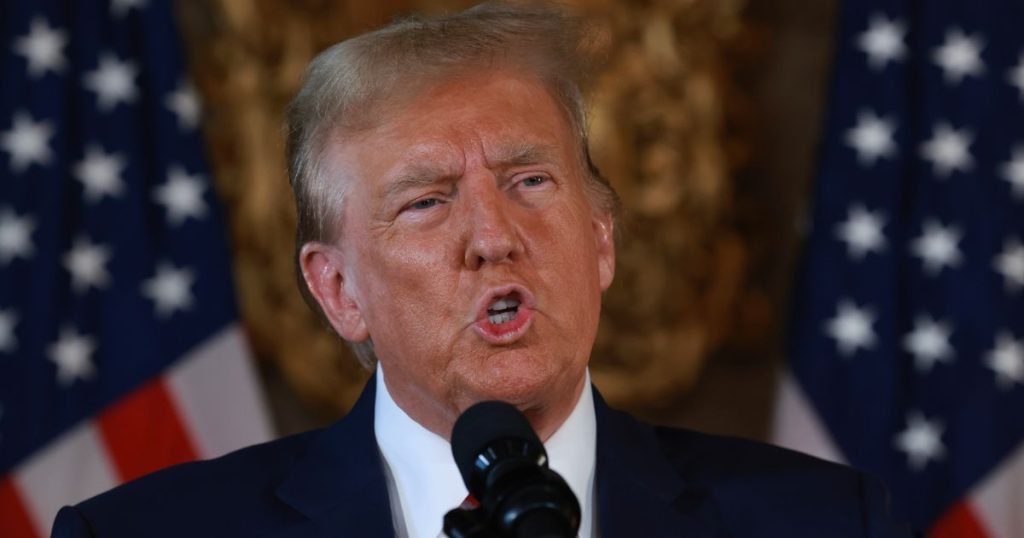In a statement, former President Donald Trump asserted that the Roe v. Wade decision, which legalized abortion in the United States, is no longer necessary. Trump claimed that the decision has been effectively dismantled by states implementing their own laws and regulations on abortion, rendering the Supreme Court ruling obsolete. He praised the states for their handling of the issue, stating that they are managing it “brilliantly” and that the system is working as intended. This viewpoint reflects Trump’s longstanding opposition to abortion rights and his efforts to restrict access to the procedure during his presidency.
Trump’s comments highlight the ongoing challenges to abortion rights in the United States, with many states enacting restrictive laws that make it increasingly difficult for individuals to access abortion services. By shifting decision-making power to the states, Trump and his supporters hope to further limit reproductive rights and potentially overturn Roe v. Wade entirely. This decentralized approach allows conservative-leaning states to pass restrictive legislation without federal intervention, effectively eroding the protections established by the landmark Supreme Court case.
Despite Trump’s claims of success, many advocates for abortion rights are concerned about the implications of dismantling Roe v. Wade and leaving the issue up to individual states. The patchwork of laws and regulations across the country could result in significant disparities in access to abortion services, with some states severely limiting or outright banning the procedure. This would disproportionately impact marginalized communities who already face barriers to healthcare, further entrenching inequality and injustice in the healthcare system.
The debate over abortion rights has been a contentious and divisive issue in American politics for decades, with both supporters and opponents of the procedure fiercely defending their positions. The rise of conservative state legislatures and the appointment of conservative judges to the Supreme Court have emboldened opponents of abortion to push for stricter regulations and legal challenges to Roe v. Wade. As a result, the future of abortion rights in the United States remains uncertain, with the possibility of significant changes to existing laws and protections.
In response to Trump’s remarks, abortion rights advocates are mobilizing to protect and expand access to reproductive healthcare services. Organizations like Planned Parenthood and the American Civil Liberties Union are working to challenge restrictive state laws and advocate for federal legislation that protects abortion rights nationwide. As the battle over abortion rights continues to unfold, the outcome will have far-reaching implications for women’s health, autonomy, and equality in the United States.
Ultimately, the debate over abortion rights reflects broader tensions in American society around issues of gender, sexuality, and healthcare. The outcome of this debate will shape the future of reproductive rights and access to healthcare for generations to come, highlighting the need for ongoing advocacy and activism to defend and expand the rights of all individuals to make decisions about their own bodies and lives.


